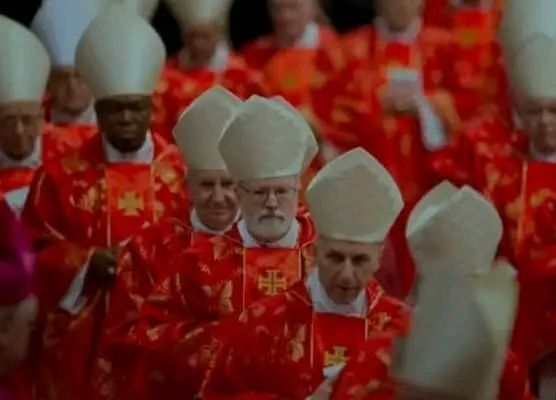By Jones Gadama
The Catholic Church in Africa is poised to play a significant role in shaping the future of the global Catholic community as 18 cardinal electors from the continent prepare to participate in a conclave.
These high-ranking clergy members, all under the age of 80, will have the privilege of voting for the next Pope.
Ivory Coast has the largest representation in the region with two cardinal electors: Cardinal Jean-Pierre Kutwa, 79, and Cardinal Ignace Bessi Dogbo, 63. The other countries represented include Algeria, Burkina Faso, Cape Verde, Central African Republic, Democratic Republic of the Congo, Ethiopia, Ghana, Guinea, Kenya, Madagascar, Morocco, Nigeria, Rwanda, South Africa, South Sudan, and Tanzania, each with one cardinal elector.

The 18 African cardinal electors who will participate in the conclave are:
– Algeria: Cardinal Jean-Paul Vesco, 63 years old, French
– Burkina Faso: Cardinal Nakellentuba Ouédraogo, 79 years old
– Cape Verde: Cardinal Arlindo Gomes Furtado, 75 years old
– Central African Republic: Cardinal Dieudonné Nzapalainga, 58 years old
– Democratic Republic of the Congo: Cardinal Fridolin Ambongo Besungu, 65 years old
– Ethiopia: Cardinal Berhaneyesus Demerew Souraphiel, 76 years old
– Ghana: Cardinal Peter Turkson, 76 years old
– Guinea: Cardinal Robert Sarah, 79 years old
– Ivory Coast:
– Cardinal Jean-Pierre Kutwa, 79 years old
– Cardinal Ignace Bessi Dogbo, 63 years old
– Kenya: Cardinal John Njue, 79 years old
– Madagascar: Cardinal Désiré Tsarahazana, 70 years old
– Morocco: Cardinal Cristóbal López Romero, 72 years old, Spanish
– Nigeria: Cardinal Peter Ebere Okpaleke, 62 years old
– Rwanda: Cardinal Antoine Kambanda, 66 years old
– South Africa: Cardinal Stephen Brislin, 68 years old
– South Sudan: Cardinal Stephen Ameyu Martin Mulla, 61 years old
– Tanzania: Cardinal Protase Rugambwa, 64 years old
The conclave marks a significant moment in the history of the Catholic Church, as it brings together clergy members from diverse backgrounds to elect a new leader.
The process of electing a Pope involves a series of ballots, with a two-thirds majority required for a successful outcome. Cardinals may also choose to change their vote through a process known as “accessus,” where they “accede” to another candidate.
The 18 African cardinal electors bring a wealth of experience and perspectives to the conclave. Fifteen of them were created by Pope Francis, two by Pope Benedict XVI, and one by Pope Saint John Paul II.
Their participation will not only shape the future of the Catholic Church but also reflect the growing influence of African Catholics in the global community.
As the conclave approaches, the world watches with anticipation, recognizing the significance of this moment in the history of the Catholic Church.
The outcome will have far-reaching implications for the Church and its followers worldwide.
In the context of African politics and democracy, the conclave also highlights the importance of leadership and representation.
Just as African countries strive for inclusive and effective governance, the Catholic Church seeks to ensure that its leadership reflects the diverse needs and perspectives of its global community.
The cardinal electors from Africa will undoubtedly play a crucial role in shaping the future of the Catholic Church, as they bring their unique experiences and insights to the conclave.
Their participation will be closely watched, not only by Catholics but also by people around the world interested in the ongoing evolution of the Church.


